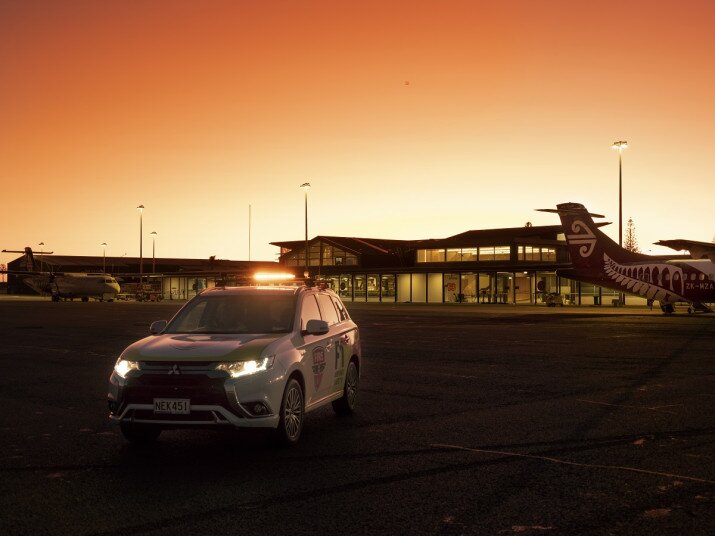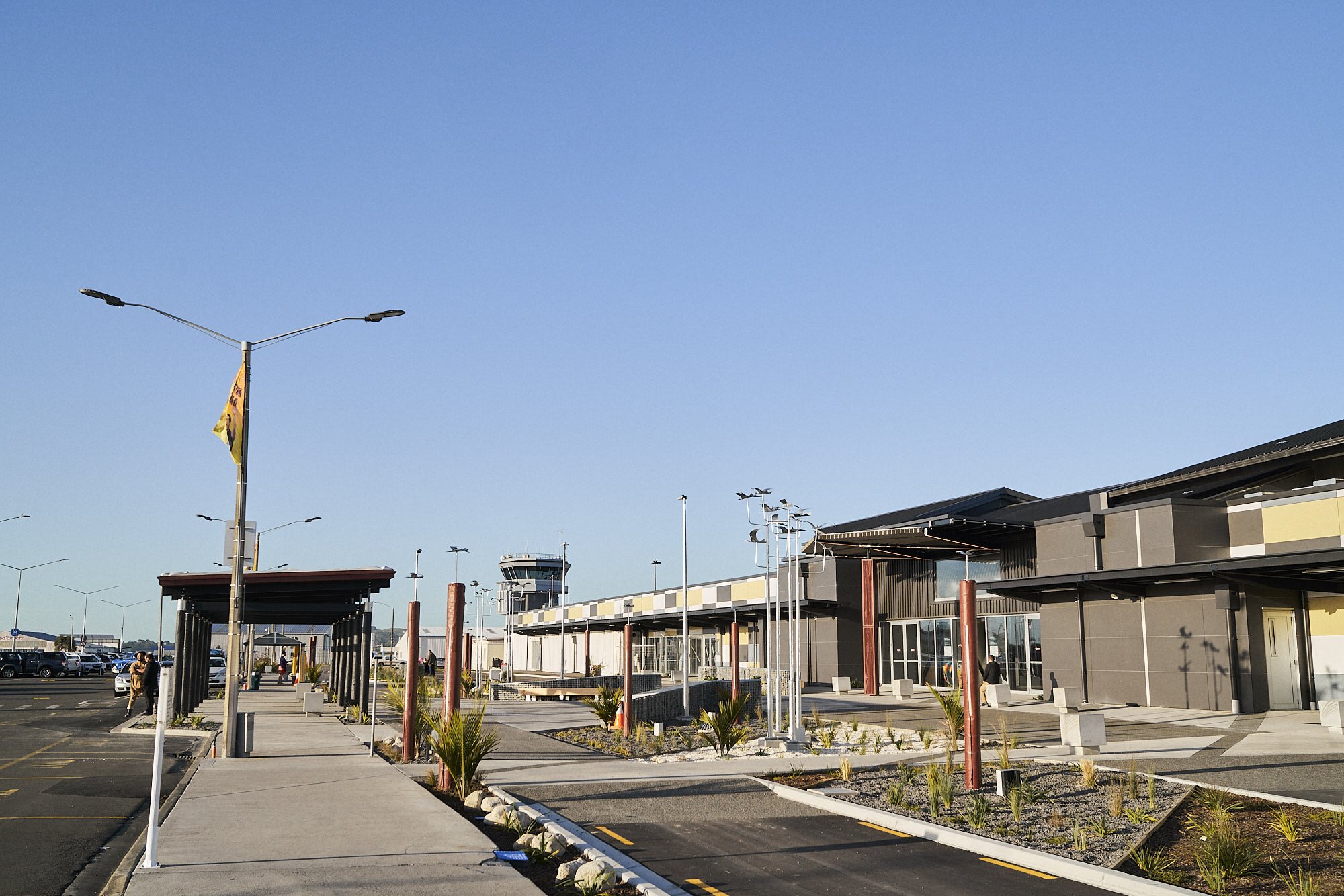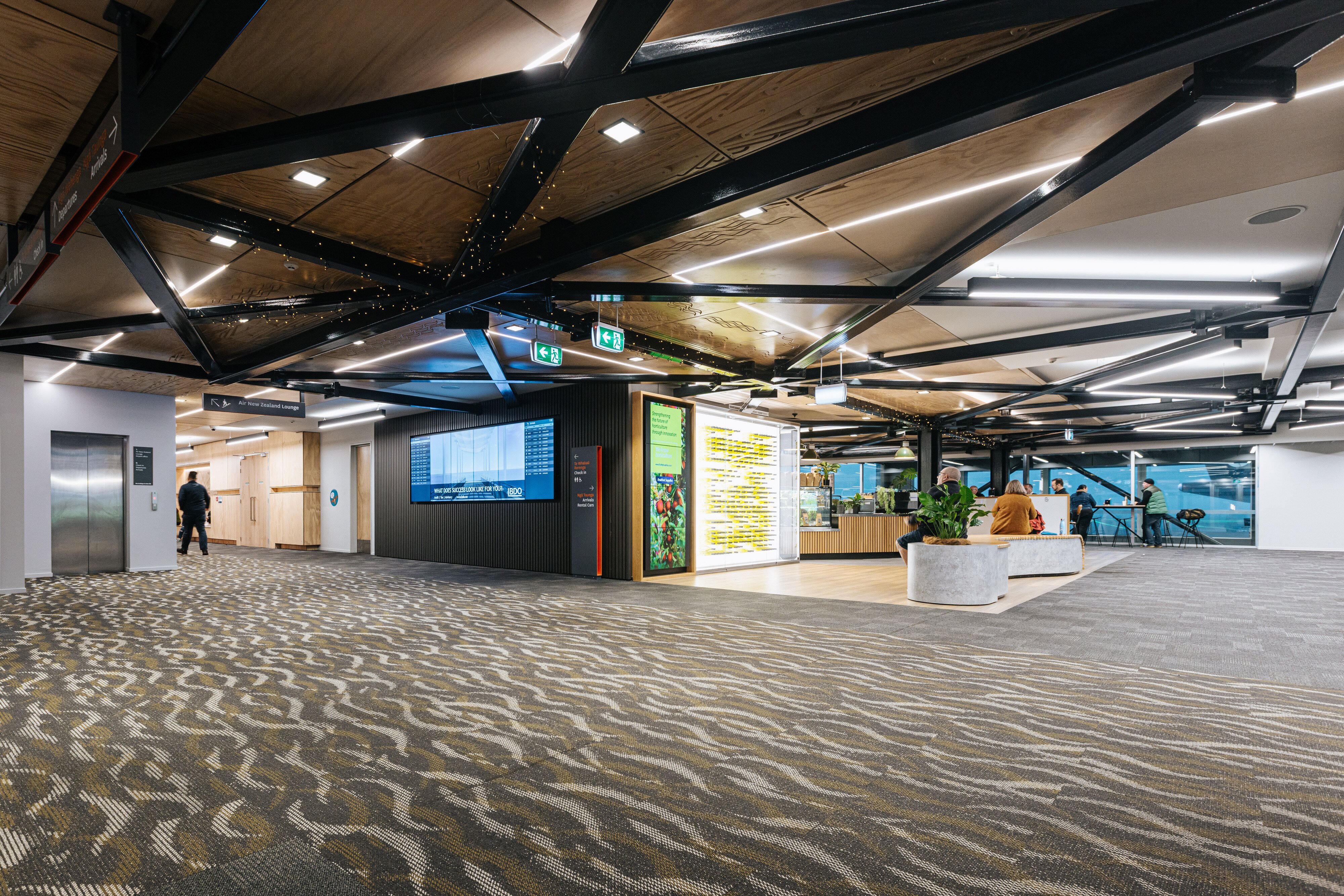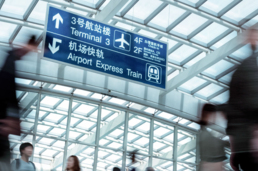Collaborative efforts lead to ACI ACA Level 4+ ‘Transition’ status for Hawke’s Bay Airport
- 2023-07-13
Rob Stratford, CEO, Hawke’s Bay Airport narrates the airport's journey towards becoming the only airport in Australasia with Level 4+ ‘Transition’ status, the top tier of the Airports Council International Airport Carbon Accreditation programme
_1689212462.jpg)
Rob Stratford, CEO, Hawke’s Bay Airport
Hawke’s Bay Airport is proud to have achieved the highest level of Airports Council International Airport Carbon Accreditation, and is the only airport in Australasia with Level 4+ ‘Transition’ status, the top tier of the programme
Our sustainability journey started in 2019, with the creation of our sustainability policy and framework. Since then, we have been working steadily on our decarbonisation plan, progressing through the ACA levels and embedding sustainability principles and practices throughout the airport’s operations.
It has been a real team effort, championed by our board, led by our sustainability projects manager Michelle Duncan, and involving everyone on our team as well as customers, suppliers, airlines, and everyone that passes through our airport, both landside and airside.
It has taken a lot of work to get to this point, and our journey doesn’t stop with 4+ Transition. We now have to maintain this status and continue our progress. Our decarbonisation efforts are now focused on absolute emissions reductions and effective partnerships with business partners oriented towards greater sustainability across the entire airport site.
HBAL’s sustainability measures and impacts
Our decarbonisation initiatives have included transitioning vehicles to EV or hybrid, procuring carbon neutral electricity for the terminal and tenants, use of smart meters and lighting, and ensuring our new terminal building is fossil fuel free. We’ve added ground power to aircraft gates and charging facilities for electric ground support equipment. Inside our terminal building we’ve added high-performance, low emission electricity solutions for hospitality tenants.

Other actions not involving decarbonisation include working with Biodiversity Hawke’s Bay restoring the ecologically sensitive Te Taha environment, ensuring our suppliers align with our sustainability goals, refining our stakeholder engagement processes, and our sustainability-linked loan.
The most significant impacts to date are:
- 82% reduction in Scope 1 & 2 carbon emissions in F22 compared to a three-year rolling average
- 75% reduction in water use over the past six years
Hawke’s Bay Airport has a number of sustainability-related partnerships and memberships along with our participation in Airport Carbon Accreditation including:
- Hawke’s Bay Climate Action Network
- Biodiversity Hawke’s Bay
- NZ Airports Association Sustainability Forum
- Energy Efficiency Conservation Authority/Hawke’s Bay Trails
- Air New Zealand’s working group of airports supporting Flight NZ0
- Chargenet for EV charger infrastructure
Our efforts have seen us recognised as a sustainability leader not only regionally, but within the airport sector. We have received the Green Airports platinum recognition for carbon reduction, New Zealand Airports Association Sustainability Initiative of the Year award, as well as the New Zealand Airports Association Medium Airport of the Year award.
Social, environmental and economic projects at Hawke’s Bay Airport.

Incremental gains towards our sustainability goals will always be important, and we have a number of small and large projects underway, like our commitment to working towards eliminating single use plastic across the airport, including our tenants. We’re also conducting waste audits and investigating a closed loop solution for coffee cups. Technology is helping us get great data on our energy and water use, and indoor air quality to help us drive further savings. We have plans for fast charging EV stations with our partner Chargenet, helping our rental car tenants add more electric vehicles to their fleet, new solar powered acoustic bird deterrents replacing LPG canons, and we recently introduced ticketless parking, eliminating paper-based tickets. The design for our new fire station incorporates sustainability and life-cycle thinking.
Taking care of our environment and leading conversations around the sustainable future of aviation is critically important to the Airport. Sustainability is at the heart of everything that we do. That’s why it’s important that we fully play our part in climate change response and show leadership in our industry and region, because all businesses need to make changes if we are to meet our collective decarbonisation goals and become carbon neutral by 2050. Achieving Level 4+ ‘Transition’ is a great milestone; and we look forward to the journey continuing.
Projects planned for the future include a solar farm (still in the early planning stages), which helps prepare the airport for innovations in aviation on the horizon – electric and hydrogen powered aircraft – and means that Hawke’s Bay Airport will become a provider of green electricity for local business and residential communities. We will also develop charging infrastructure to support new technology aircraft, and investigate the transition of our airfield lighting to solar power, making use of Hawke’s Bay’s abundant sunshine. Other initiatives in the forward pipeline include sustainable procurement, focus on climate change risk and adaption planning, and climate related financial disclosures.
Challenges and opportunities
For Hawke’s Bay Airport, our biggest challenges relate to our unique environment. We are proximate to an estuary and wetlands with significant bird populations, so managing risks to aircraft safety is a high priority, as is balancing environmental impacts with the need for airport and renewable energy development. Our land is low lying – uplifted following the 1931 earthquake – which puts us at risk from climate change impacts like sea level rise (we have a number of robust mitigations in place). And of course, like every other airport we are challenged by emissions we have no control over; those coming from aircraft and how passengers travel to the airport, as well as other developments within our growth plans. We actively encourage sustainable transport to the airport; our bike port is well patronised by hardy travellers who choose to cycle to our facilities, and we look forward to emissions free public transport to the airport that the regional council has committed to delivering in 2025.

Future opportunities are closely linked to our planned solar farm; being able to generate renewable energy could lead to us producing green hydrogen to support future decarbonisation of aviation and in the case of hydrogen, heavy transport. We also have exciting opportunities to partner more closely with local Iwi, and to collaborate on nature-based solutions to restoring biodiversity, such as restoration of wetlands in our neighbourhood.
Taking care of our environment and leading conversations around the sustainable future of aviation is critically important to the Airport. Sustainability is at the heart of everything that we do. That’s why it’s important that we fully play our part in climate change response and show leadership in our industry and region, because all businesses need to make changes if we are to meet our collective decarbonisation goals and become carbon neutral by 2050. Achieving Level 4+ ‘Transition’ is a great milestone; and we look forward to the journey continuing.
This article was provided by a third party. The views expressed in the article do not represent or reflect the views of ACI Asia-Pacific. Inclusion of any link to other external sites does not imply endorsement by ACI Asia-Pacific of those sites and ACI Asia-Pacific shall not be held responsible or liable for any content, advertising, products or other materials on or available from such external resources and sites.
- CATEGORY
- COUNTRY / AREA
- Hong Kong SAR
- AUTHOR
- Rob Stratford, CEO, Hawke’s Bay AirportACI Asia-Pacific







